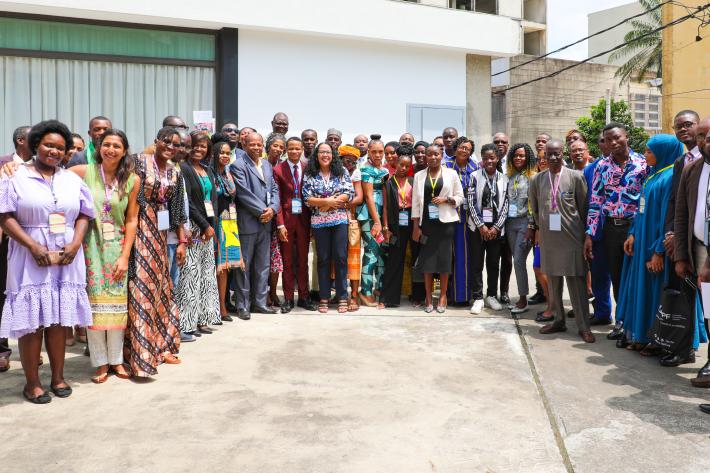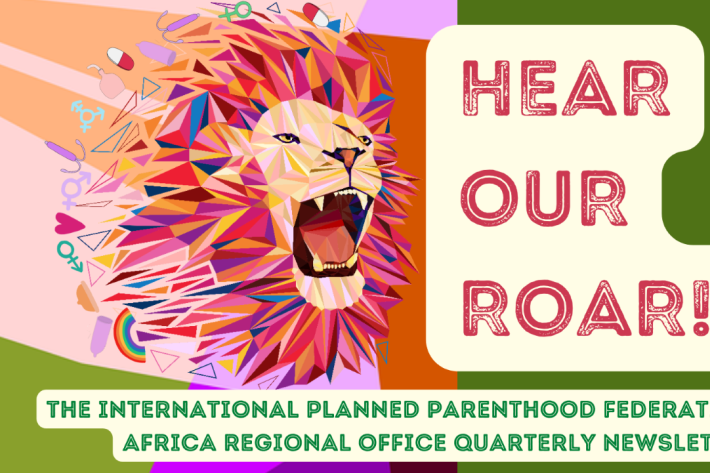
Spotlight
A selection of news from across the Federation
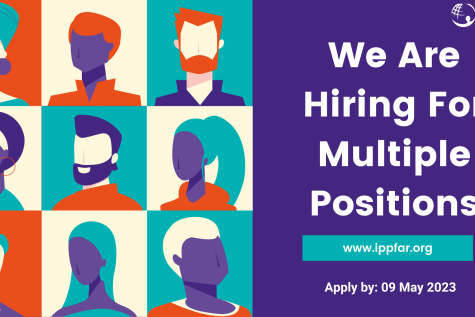
Africa
IPPF Africa Region is seeking talented individuals to support its work
In alignment with its strategy, the IPPF Africa Regional Office is hiring for multiple positions based in Kenya and Côte d'Ivoire.
Filter our news by:


| 13 January 2022
Mois de la jeunesse africaine : Faisons le point sur les engagements de l'Afrique envers les jeunes !
Cela fait maintenant un peu plus de 15 ans que l'Assemblée des chefs d'État de l'Union africaine a adopté la Charte africaine de la jeunesse à Banjul, en Gambie. Bien que cette Charte fournisse un cadre stratégique visant à renforcer de manière significative la participation des jeunes dans l'agenda de développement de l'Afrique, les idéaux de cette Charte doivent encore être réalisés par les jeunes, dans toute leur diversité. En effet, le programme de développement de l'Afrique doit être lié à la santé et au bien-être de ses jeunes. Le rapport des Nations unies sur les projections démographiques mondiales fait état d'une augmentation progressive du nombre de jeunes âgés de 15 à 24 ans en Afrique depuis 1952, et cette augmentation n'a cessé de croître au fil des ans. Le rapport prévoit également que d'ici 2030, plus de la moitié des pays d'Afrique connaîtront une augmentation de plus de 40 % du nombre de jeunes. Ces chiffres démontrent la nécessité d'un engagement plus significatif des jeunes qui seront la force motrice de l'agenda de développement du continent. La santé et les droits sexuels et reproductifs (SDSR) des jeunes en Afrique sont un sujet qui nécessite une réflexion approfondie et une priorité particulière de la part de toutes les parties prenantes. Les besoins des jeunes en matière de santé sexuelle et reproductive (SSR) sont le plus souvent négligés en raison d'une myriade de facteurs, notamment les coutumes et les tabous qui entravent leur accès aux contraceptifs, les législations sur le consentement parental ou conjugal, les services de SSR qui sont inadéquats ou mal adaptés pour répondre à la diversité des besoins des jeunes. En outre, les adolescents et les jeunes manquent d'informations sur l'hygiène menstruelle, les différents types d'IST, la contraception, la prévention de la violence sexuelle, entre autres sujets. Ces informations sont pourtant essentielles pour leur permettre de prendre des décisions en connaissance de cause et les doter des compétences dont ils ont besoin pour profiter pleinement de leurs DSSR. Cette situation problématique a été aggravée par la pandémie de COVID-19, qui a exacerbé la vulnérabilité des jeunes, nombre d'entre eux étant exposés à la violence sexuelle et sexiste, à l'exploitation sexuelle, ainsi qu'à la fermeture des cliniques et autres services d'aide d'urgence. Avec la fermeture de nombreuses écoles, les adolescentes et les jeunes femmes ont été particulièrement touchées et les grossesses précoces ont augmenté en raison des violences sexuelles et du manque d'informations sur la SSR. Par conséquent, cette année, alors que l'Union africaine consacre le mois de novembre à la jeunesse africaine sous le thème "Définir l'avenir aujourd'hui: Des solutions menées par les jeunes pour construire l'Afrique que nous voulons", il est essentiel que le continent réfléchisse et agisse en fonction de son engagement envers les jeunes, tel que souligné dans son agenda 2063 et plus particulièrement dans la Charte africaine de la jeunesse. Les jeunes en Afrique ne sont pas vulnérables, mais on les rend vulnérables lorsqu'ils ne sont pas impliqués, entendus, engagés, autorisés à diriger, capables de partager leurs idées sur ce qu'ils veulent voir du continent dans les années à venir et dotés des connaissances et des informations nécessaires pour faire leurs propres choix et déterminer leur destin, notamment en ce qui concerne leur SDSR. L'Afrique ne manque pas de jeunes capables de diriger, d'apporter le changement que nous souhaitons et de contribuer à faire avancer le programme de développement de l'Afrique. Au Ghana, le Mouvement d’Action des Jeunes (MAJ), un réseau national de jeunes menant et promouvant la SDSR des jeunes, s'est défini comme un mouvement par et pour la jeunesse ghanéenne. Le plaidoyer du mouvement en faveur de l'information et des services de SDSR et des jeunes a conduit à une augmentation du nombre de jeunes occupant des postes de direction, faisant campagne et engageant le gouvernement sur la SSR. Le MAJ a plaidé pour un changement positif dans l'accès aux services adaptés aux jeunes au niveau communautaire. Cela a conduit à une augmentation du nombre de cliniques offrant des services de SSR adaptés aux jeunes au Ghana. Le mouvement a également complété les efforts du gouvernement en fournissant des informations et des services de SDSR à la population générale, en particulier aux adolescents, aux femmes, aux hommes et aux groupes vulnérables, y compris les personnes vivant avec un handicap. Le MAJ participe aussi activement à la mise en relation des jeunes avec les services par le biais du programme de sensibilisation organisé par le programme de l'Association de planification familiale du Ghana, intitulé "YENKASA", qui signifie "parlons" en langue locale Twi. Depuis sa création en 2020, le centre de contact a répondu aux besoins et aux défis en matière de SDSR de milliers de jeunes au Ghana. Les jeunes d'Afrique continuent de démontrer qu'ils sont capables et prêts à être les moteurs et les partenaires du programme de développement de l'Afrique, y compris dans le domaine de la SDSR. Il appartient maintenant aux dirigeants et aux institutions de l'Afrique de leur accorder la confiance et l'espace qu'ils ont recherchés et mérités. Anita Nyanjong, Lead Global, Jeunes de la Fédération Internationale pour la Planification Familiale, bureau Afrique (IPPFAR) Claudia Lawson, Présidente du Mouvement d’Action des Jeunes du Ghana

| 13 January 2022
Putting All Women at the Centre of our Work, no Matter Where they Live
More than half of Africa’s women live in rural areas. These women and girls, though diverse in their identities and situations, face similar barriers in accessing critical and timely sexual and reproductive health information, services and commodities. They often live at great distances from health facilities, which often turn into perilous and difficult journeys; the services are often inadequate and costly, medical staff are poorly trained or often just absent; services provided lack confidentiality; women are faced with long waiting hours, work and family obligations and the constant fear of stigmatization and discrimination. The list is truly endless. Additionally, those that may need to access health services lack awareness and knowledge of when and where to seek it. Comprehensive Sexuality Education (CSE) is conspicuously absent from school curriculums, and young girls are often unaware of concepts as basic as menstrual hygiene. Rural women and girls, more so that their urban counterparts, also lack knowledge about contraception and safe maternal health practices. They live in largely patriarchal societies, they cannot make independence choices and lack bodily autonomy. They lack choice as to when to have sex, when to have children, whether and if they can use contraception. Not surprisingly, there are up to three times more pregnancies among teenage girls in rural and indigenous areas than in urban populations. This is all the more concerning when complications from pregnancy and childbirth are the leading cause of death among girls aged 15–19 years globally. Women in rural areas also have lower access to safe abortions, given that few healthcare providers are able or willing to provide these services, even where safe abortion is an option. This, coupled with a lack of accurate knowledge of safe abortion and a strong fear of stigmatisation, means many women resort to seeking unsafe abortion services despite knowing about their risks. In Africa, 99% of abortions are unsafe, resulting in one maternal death per 150 cases. IPPF Africa Regional office works with Member Associations across Africa to deliver critical sexual and reproductive health services through a strong network of clinics, often located in very remote rural areas and many times the only health structure present. These clinics work in coordination with Government health structures, providing most services free-of-cost; and run regular training sessions to ensure medical practitioners have access to up-to-date medical knowledge. They also invest in the health structures of rural government-owned facilities to ensure delivery of high-quality health services. In areas with no health centers, MAs conduct regular mobile health clinics, where they provide integrated reproductive health services to isolated rural populations. Further, models of social franchising, implemented for example by the Family Guidance of Ethiopia (FGAE), have proven to be successful in addressing the needs of many women and girls in remote areas. This kind of model entails a contractual relationship between franchisee and franchiser where the franchisee agrees to produce or market some important SRH products or services in accordance with an overall “Blue Print” devised by the franchiser. To ensure a strong and complete continuum of care, a high number of Community Health Extension Workers (CHEWs) are recruited and trained. They conduct home visits, providing accurate information, basic services, and commodities. Also, with the onset of the COVID-19 pandemic, new approaches were piloted. The Planned Parenthood Association of Zambia introduced a new initiative teaching women and adolescent girls’ to self-administer contraceptives, building their skills, knowledge, capacity and confidence to self-manage their contraceptive needs, and reducing their need to access health facilities. All Member Association initiatives prioritize youth-friendly services, which go a long way in ensuring that girls and young women access SRHR information and services and are empowered to make informed decisions, no matter where they live. Through in-and-out-of-school programmes, peer educators under the Youth Action Movement (YAM) provide SRHR information and distribute condoms to young people in rural areas. Through our advocacy efforts at national, regional and global levels, we raise our voices advocating for all women, ensuring that none is left behind. This goes in tandem with SDG 5: achieving gender equality and empowering all women and girls including rural women. We are relentless in holding governments accountable over their commitments to various instruments, including the Maputo Plan of Action (MPoA) and the Abuja Declaration. Through its programmes, IPPFAR is committed to ensuring that all women and girls can fully exercise their reproductive rights. This is why today, on the International Day of Rural Women, we call on all Governments in Africa to invest in access to quality sexual and reproductive health for rural women and girls. For more updates on our work, follow IPPF Africa Region on Facebook, Twitter, Instagram and You Tube.

| 13 January 2022
The IPPF Africa Regional Sub-Office to the African Union and the United Nations Economic Commission in Africa (IPPF AUSO) launches policy papers on Universal Health Coverage (UHC) and Sexual and Reproductive Health and Rights (SRHR)
UHC means that all individuals and communities receive the health services and care they need without suffering financial hardship. It includes the full spectrum of essential, quality health services, from health promotion to prevention, treatment, rehabilitation and palliative care, and comprises an explicit commitment to provide sexual and reproductive health (SRH) services for all, as agreed in the UHC Political Declaration adopted in 2019. However, SRH services and rights are not adequately prioritized in UHC. It is in this context that the IPPF AUSO, in collaboration with the Gender is my Agenda Campaign (GIMAC) network will launch a policy review and position paper on UHC and SRHR on 11th October, 2021, from 16:00 – 17:00 hrs (GMT+3) during the network’s consultative meeting with the African Union (AU) and Regional Economic Communities (RECS) on the AU theme of the Year, “Arts, Culture, and Heritage: Levers for Building the Africa We Want”. The COVID-19 crisis calls for re-examining the continent’s socio-economic priorities, contributing to building stronger and more resilient health and social sectors, towards equality and inclusion, which are at the heart of the African philosophy of Ubuntu. This launch will provide a platform to generate discourse and build political support for UHC and SRHR at national, regional and global level, as countries seek to mitigate the devasting economic, social, health, and financial impacts of the COVID-19 pandemic on the continent. The launch will be facilitated by advocates and experts drawn from regional Civil Society Organizations (CSOs) and UN organizations. Reflections will be centred around key themes including advocacy, health systems strengthening, meaningful youth engagement, data and evidence building for inclusion of SRHR in UHC Please register on the link below to participate: https://us06web.zoom.us/webinar/register/WN_yDXnJhjjRgOPERpOyw0ARA
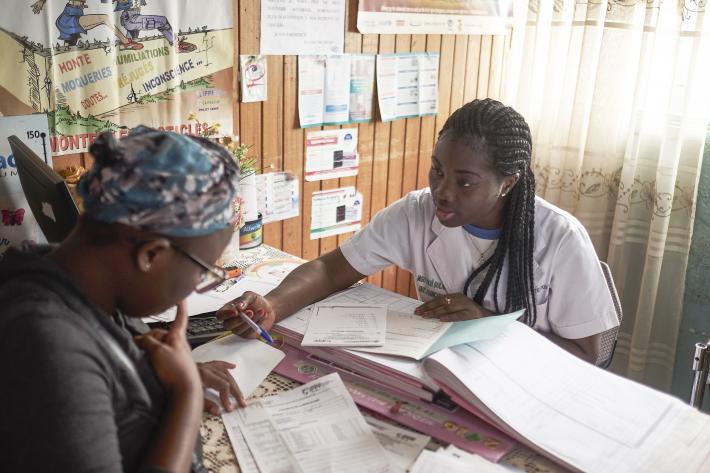
| 13 January 2022
How Women’s Access to Safe Abortion will Change in the Next Five Years
Numbers don’t lie: Between 2015 and 2019, on average, 73.3 million induced (safe and unsafe) abortions occurred worldwide each year. Every year, between 4.7% – 13.2% of maternal deaths can be attributed to unsafe abortion. The World Health Organization (WHO) defines unsafe abortion as a procedure for terminating an unwanted pregnancy either by persons lacking the necessary skills or in an environment lacking minimal medical standards or both. Unsafe abortions result in the deaths of 47,000 women every year and leaves millions temporarily or permanently disabled[1]. In Africa, nearly half of all abortions happen in the least safe circumstances. Moreover, mortality from unsafe abortion disproportionately affects women in Africa. While the continent accounts for 29% of all unsafe abortions, it sees 62% of unsafe abortion-related deaths (WHO). An estimated 93% of women of reproductive age in Africa live in countries with restrictive abortion laws. This means that the country’s laws only permit abortion in certain cases, often only if there is risk to the woman’s life, her health, the pregnancy is the result of rape, or there is evidence of foetal impairment. The costs of treating medical complications from unsafe abortion constitute a significant financial burden for developing countries’ public health care systems. Further, the more restrictive the legal setting, the higher the proportion of unsafe abortions. Statistics from unsafe abortions give us a glimpse into the suffering women must endure to end an unwanted pregnancy. We must challenge, re-evaluate different countries’ positions on the provision of life-saving safe-abortion care. We must advocate for changes in laws and policies and push-for the uptake of targeted and budgeted approaches that reach women and girls with safe abortion and contraception services wherever they are. IPPF and other key stakeholders are working towards ensuring that in the next five years, more women and girls will access abortion services differently, as the solutions to terminate a pregnancy will be more easily understood and available through self-managed medical abortion. This new approach promises to radically transform how health care is perceived and accessed by firmly placing women and girls at the centre of the abortion process; shifting the power dynamic from a medicalized and provider-led/decided approach to one that is person-centred and guarantees bodily autonomy. Where women can take control of their bodies and decide when and if to have children; whilst being supported by the healthcare system if needed. Also Read: Safe abortion in the context of COVID-19: partnership, dialogue and digital innovation This approach has been endorsed by WHO and is detailed within the newly released self-care guidelines. Several studies have confirmed that self-managed abortion is safe, effective, and not inferior to those performed in clinical settings. A recent WHO review revealed that 94–96% of self-managed abortions had similar success rates to those conducted in clinic-based settings. In fact, 90% of clients confirmed they would recommend self-managed medical abortion. As local and global actors working for women’s health, rights and bodily autonomy, we must champion and roll out such new models and approaches that uphold, protect and champion women’s health, sexual rights and reproductive justice. Last July, IPPF joined global actors at the Generation Equality Forum to define and announce ambitious investments and policies for women and girls worldwide. Among our bold commitments, was a resolve to “expand and improve the provision of abortion care through 102 Member Associations, including quality medical and surgical abortion, person-centered abortion self-care support, and abortion care beyond 12 weeks of gestation through a simplified outpatient model using task-shifting to mid-level providers, including self-managed medical abortion.” This is a bold pledge that cannot depend on IPPF alone. It is critical if we are to reach the target of making the self-management of abortion a reality by 2026. Among others, IPPF calls upon the global ecosystem; feminist movements and civil-society organisations to continue to counter the multiple barriers i.e., legal, cultural, social and religious, that impede women from accessing safe abortion freely. Also Read: Abortion Quality of Care from the Client Perspective: a Qualitative Study in India and Kenya IPPF also calls upon policy and decision-makers to uphold their sexual reproductive health and rights (SRHR) commitments and repeal laws and policies that prevent safe abortion. We ask donors to invest in commodities and essential supplies, service delivery partners and prioritize research that promotes this approach. We also urge local and national stakeholders and service providers to embrace this new approach by encouraging, providing and supporting the integration of new models of abortion service delivery within existing clinic-based services. Self-care is not a magic bullet, and neither will this radical change happen by chance. It takes all of us to make it happen. This is not just a question of access. It is a fundamental question of freedom, empowerment, and bodily autonomy. Read more about The Global Comprehensive Abortion Care Initiative (GCACI). By Marie-Evelyne Petrus-Barry, Regional Director, International Planned Parenthood Federation, Africa Region (IPPFAR). Marie-Evelyne Petrus-Barry is the Regional Director of the International Planned Parenthood Federation, Africa Region (IPPFAR). The International Planned Parenthood Federation Africa Region (IPPFAR) is one of the leading providers of quality sexual and reproductive health (SRH) services in Africa and a leading sexual and reproductive health and rights (SRHR) advocacy voice in the region. For more updates on our work, follow IPPF Africa Region on Facebook, Twitter, Instagram and You Tube.

| 06 July 2021
IPPF announces new commitments to Sexual and Reproductive Health and Rights (SRHR) at the Generation Equality Forum
The Generation Equality Forum (GEF) is a global multi-stakeholder platform to reignite the worldwide commitment for gender equality, convened by UN Women and the governments of Mexico and France. The Forum kicked off in Mexico City, Mexico, on 29 – 31 March 2021, and culminated in Paris, France, on 30 June – 2 July 2021, with the aim of securing a set of concrete, ambitious, and transformative commitments to achieve irreversible progress towards gender equality; bringing together governments, civil society organizations, young people-led organizations, the private sector and foundations to define and announce ambitious investments and policies on a range of priority areas, from climate change to sexual and reproductive health and rights (SRHR), gender-based violence, feminist movements, technology and economic justice. IPPF is proud to be one of the co-leads of the Action Coalition on Bodily Autonomy & SRHR, which aims to: Expand access to comprehensive sexuality education (CSE) in and out of school Increase qualitative access to contraception Empower all people, including adolescents and women, in all their diversity to make autonomous choices about their bodies, sexuality and reproduction Strengthen girls, women’s and feminist organizations and networks to promote and protect bodily autonomy and SRHR. IPPF has joined the two collective commitments of this Action Coalition on abortion and CSE. IPPF’s individual commitment at GEF By 2026, IPPF commits to work to accelerate universal access to safe abortion care centered on three principles – rights-based, reproductive justice and gender transformative – with a focus on the following strategies: Expand and improve the provision of abortion care through 102 Member Associations, including quality medical and surgical abortion, person-centered abortion self-care support, and abortion care beyond 12 weeks of gestation through a simplified outpatient model using task-shifting to mid-level providers, including self-managed medical abortion. Fully integrate abortion care into humanitarian preparedness and response as full realization of SRHR, with all IPPF emergency responses providing abortion care as a standard part of the Minimum Initial Service Package (MISP). Advocate for the decriminalization of abortion and the removal of coercive policies and legislation on abortion in 25 countries, and advocate to donor governments and agencies to remove restrictions preventing work and dialogue on abortion, including the permanent repeal of the Global Gag Rule. IPPF is also pleased to announce that it will be working with the Governments of Canada, Denmark, Finland, Germany, Japan, New Zealand, Norway, Sweden and the Netherlands to help realize universal access to sexual and reproductive health and rights and CSE. IPPF’s Director-General, Dr Alvaro Bermejo, said: “Since Beijing, progress has been made towards gender equality, yet not a single country can claim to have achieved it. It’s simple; women and girls cannot wait any longer to live a life free from discrimination, free from gender-based violence and free from harmful patriarchal gender norms – we must replace rhetoric with meaningful action. "As co-leaders of the Action Coalition on Bodily Autonomy and SRHR, we are convinced that you cannot achieve gender equality without SRHR, and urge that it be at the center of policies and decision-making processes. IPPF, alongside its partners and Member Associations, will turn our commitments into meaningful action that accelerates our shared goal of achieving gender equality.” IPPF’s Global Advocacy Director, Anamaria Bejar, added: “Women and girls cannot afford more broken promises. Now is the time to renew our determination to make the Beijing Platform for Action a reality for every woman and girl in the world, to live with dignity and reach their full potential. That is why IPPF wholeheartedly support the Generation Equality Forum and what it stands for. Together, we can meaningfully work towards gender equality in our lifetime.” Fore more details about IPPF's commitments at GEF, click here. Follow IPPF Africa Region on Facebook, Twitter, Instagram and You Tube.
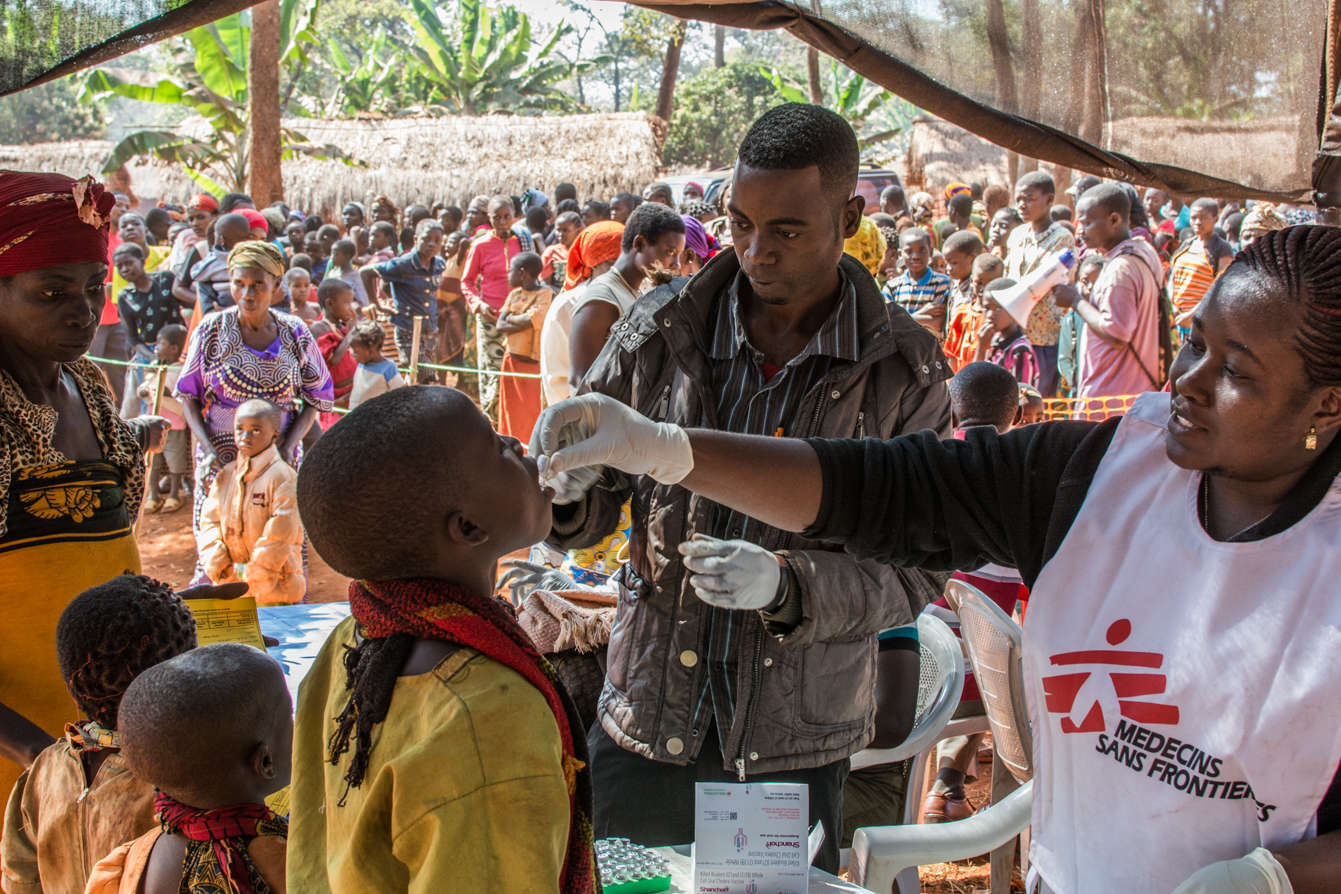
| 29 June 2021
The International Planned Parenthood Federation Africa Region is utterly shocked at the killing of three MSF staff members in Tigray, Ethiopia
Nairobi, 28 June 2021 - The International Planned Parenthood Federation (IPPF) joins Medecins Sans Frontieres (MSF) and the entire humanitarian community in strongly condemning the killing of three MSF humanitarian workers in Tigray, Ethiopia. IPPFAR is deeply shocked and horrified after receiving confirmation of the murder of Maria Hernandez, Yohannes Halefom Reda and Tedros Gebremariam Gebremichael on 25 June 2021 in Tigray. “The murder of humanitarian workers is an unacceptable and heinous violation of International Humanitarian Law. No words can convey the shock and outrage resulting from these appalling acts, and the perpetrators must be found and held accountable”, said Alvaro Bermejo, IPPF Director General. “Humanitarian and health workers must never be targeted, and security forces have an obligation to protect and respect our colleagues delivering services in conflict areas and elsewhere”, added Bermejo. IPPFAR stands in solidarity with the entire humanitarian community in conveying its deepest condolences to the family, friends and colleagues of the victims. END Media Contacts: -Mahmoud Garga, Lead Specialist - Strategic Communication, Media Relations and Digital Campaigning, IPPF Africa Regional Office (IPPFARO) – email: [email protected] -Phone +254 704 626 920 Maryanne Wanyama, Communications Officer, IPPFARO, Nairobi (Kenya) - Email: [email protected]
Pagination
- First page
- Previous page
- …
- 3
- 4
- 5
- …
- Next page
- Last page









